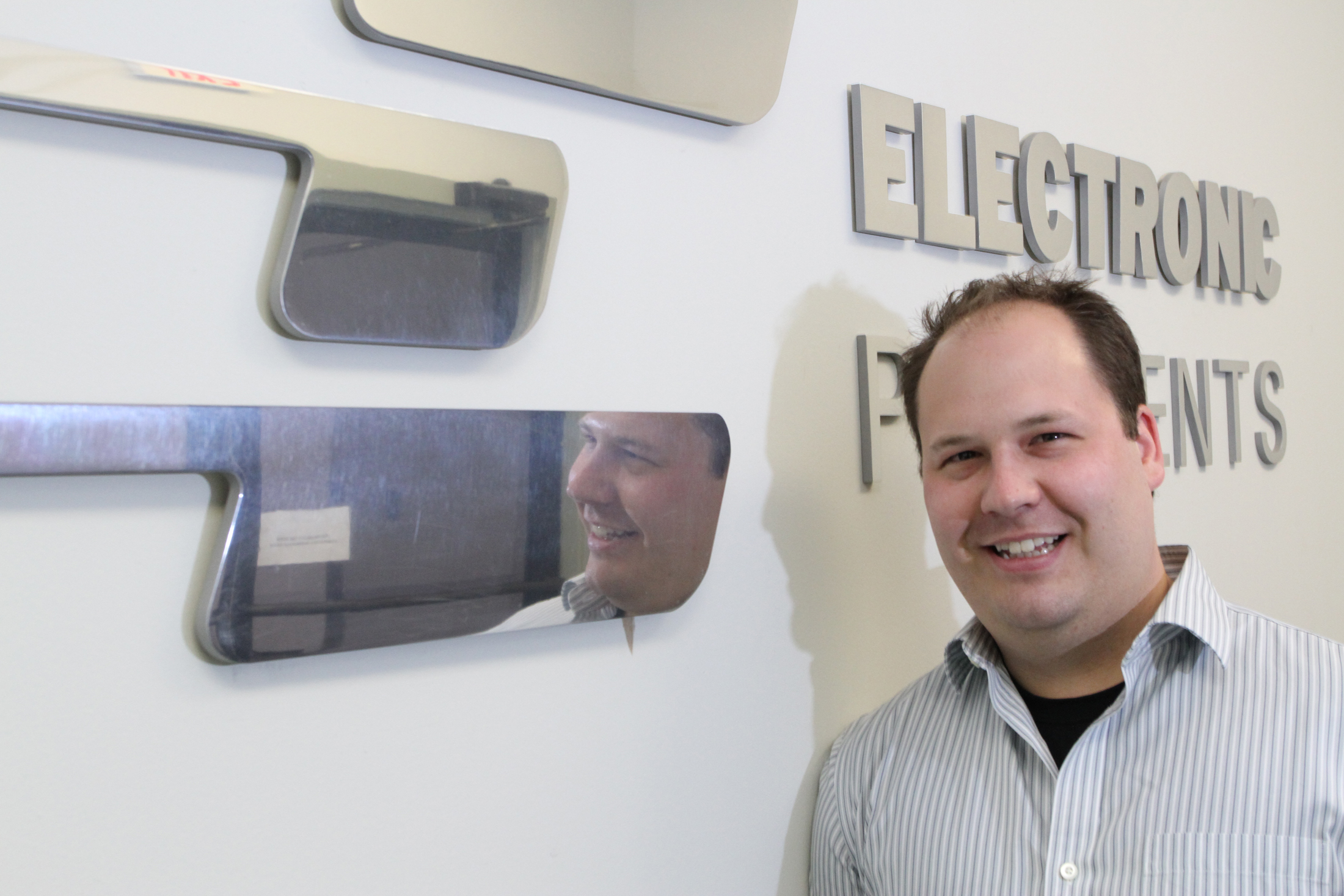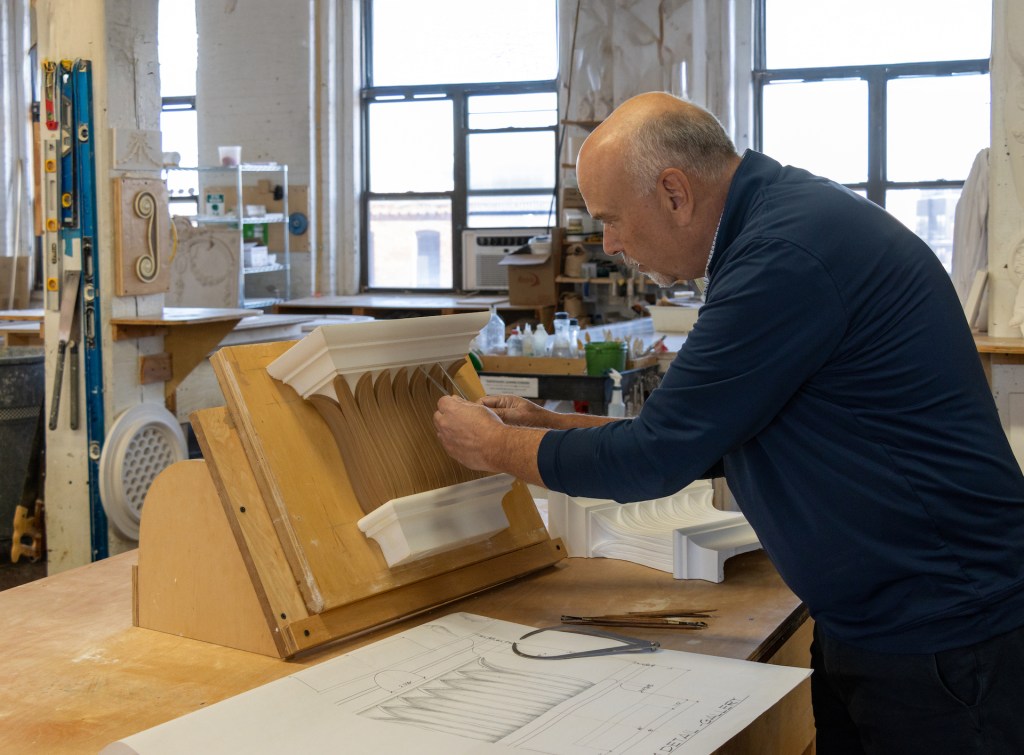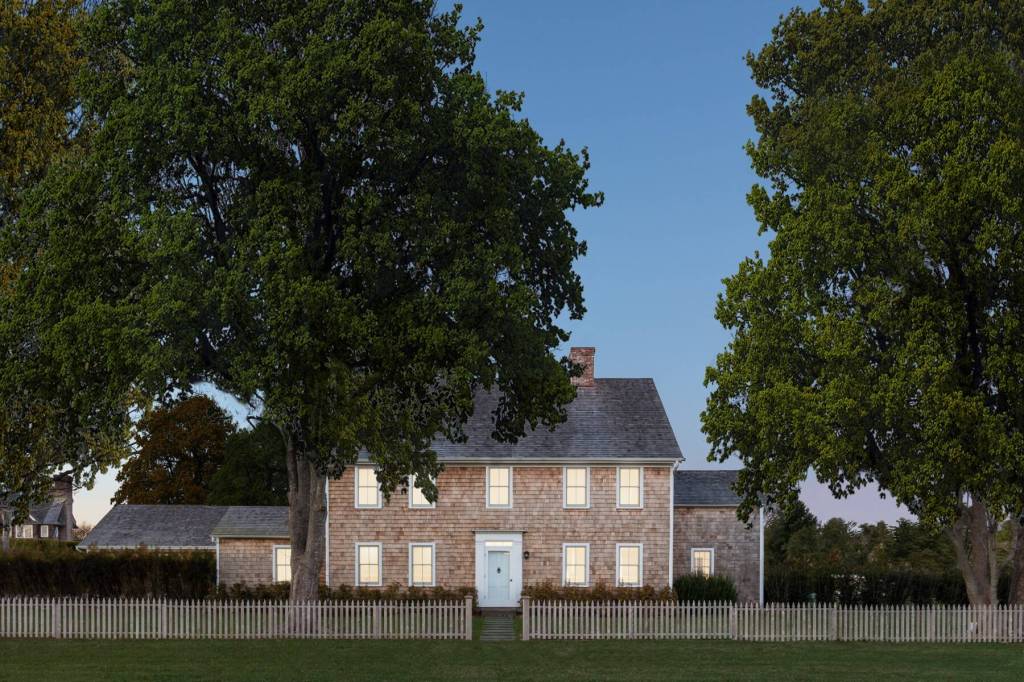Who's Here: Michael Nardy, Businessman

I am sitting having breakfast on the outdoor patio at Danny’s Poxabogue Café in Sagaponack with Michael Nardy, the son of Robert Nardy, the owner of the Nardy Pest Control Company, a firm founded by Robert’s father in 1948 in Southampton.
Michael is the eldest of two sons. His mother is a nurse at Southampton Hospital. His younger brother, David, works for the firm. All the Nardy kids work for the firm when they come of age—it’s a right of passage. And Michael did too. It’s sort of an unspoken thing. You work for Nardy during the summers in your last years of high school. You get paid of course. And when you finish college, paid for by mom and dad, you either continue on or find other work.
“There’s no nepotism at Nardy,” Michael said. “You are considered summer help until you graduate. Then you make your own way.”
“What job did you have those summers you worked for Nardy?”
“I was a certified pesticide applicator. People called us in. I was part of the crew.” [expand]
“What are the most prevalent pests you’d get called in for?”
“Ants. We’d spray. Bees. We’d remove nests.”
“Last time I called Nardy it was to remove carpenter bees,” I said. “I felt bad about it. They don’t sting. They’re just huge and curious and they were bothersome.”
“They do have a stinger but it’s vestigial. But what they do with it is drill absolutely perfect quarter-inch round holes in wood to make their nests inside a wall. You know, there’s lots of pests in the natural world. If you just let them do their thing, they won’t bother you.”
But we’re not at this breakfast to talk about pest control. What we are here to talk about is the American Dream. Michael Nardy, who is 30, lives today in Sag Harbor and works in an office up in Calverton. He owns a national payment processing company he started fresh out of college that now handles $3 billion a year. It’s quite a story.
Michael was just an ordinary school kid growing up. The family had a home in Water Mill. He went to Southampton Elementary School, then Southampton High on Hampton Road. If there was anything exceptional about him, it was that he was a straight A student. As a result, in his junior year, his parents sent him off to Phillips Academy in Andover, Massachusetts. This was, he says, by contrast, “boot camp.”
“I’d been a big fish academically in a small pond in Southampton,” he said. “Now I was with all these kids who also had been big fish in small ponds all around the country. I have to say that after Andover, the college I went to, Boston College, was a piece of cake. Suddenly I had all this spare time.”
It was the late 1990s, the dot-com boom was on. In high school he had gotten interested in the Internet and programming.
“I started a little business in college doing software,” he said. “It was just for beer money. E-Bay had started at that time, but there was no PayPal yet. My friends wanted to buy and sell things, not only on E-Bay but on their own, and they needed a way to pay for things or receive money that wasn’t too awkward. I got good at setting it up for them for a few hundred dollars. It was just a hobby.”
Interestingly, he did not study Silicon Valley stuff at college. He got a degree in English and History. He’d become fascinated with liberal arts at Phillips Andover.
“These are pretty useless degrees as I’m sure you know. But I figured I’d take the courses I liked. Life would figure itself out later. I trusted in that.”
He mentioned he had really enjoyed reading Gabriel Garcia Marques’ Love in a Time of Cholera. He also liked the work of Tony Morrison.
He also took a course in sociology in college.
“You can’t go wrong with sociology,” he said. “If you can back it up with facts, you can have an opinion on anything and get an A.”
Michael expanded on his little business in college. He figured if he could do payment arrangements for friends he could do it around the country if he advertised it. He also joined what were then called User Groups, where people of like mind wrote with others online about a particular interest.
And it was at this time that he had business cards printed up with the name of a firm on it that he had invented. EMPIRENT.
“That’s an odd name,” I said.
“Well I did discard it later. But originally it stood for Empirical NT, which is “data that has a measurement.” The purpose was to try to give some value to the name during all the craziness of the dot-com boom. So many companies were selling air that I wanted to show how our company was selling something of value.
“It has the word ‘rent’ in it,” I commented.
“It also means, in French, ‘worsen,’ but I didn’t know that at the time. Anyway, I also discovered you could get 800 numbers all over the country to forward in to one central 800 number, or even your cellphone, wherever you are. I wanted to give my little company a perceived value too. So I set up an 800 number in Chicago, another in Miami.”
Michael was now writing articles for trade magazines that dealt with his specialty. And he’d end by giving his 800 number and asking people to call if they had questions.
After graduation, he worked a final summer for his father. Then when fall came, he got laid off.
“As I said, there was no nepotism.”
But he also had this little mini-business. It wasn’t making money then. It was a fledgling thing. But he thought maybe he could build it. He wasn’t ready to go out and work for somebody else. He thought in time the business would work out. But in the meantime he applied for unemployment. And he made a big mistake.
“I was qualified for unemployment,” he said. “But when I went to Riverhead, one of the things they asked me was if I had any other employment opportunities. So I proudly took out my business card and showed it to them.”
Empirent. CEO and President. Offices in Chicago, Southampton and Miami.
“’Looks like you’re just fine,’ they told me. They turned me down.”
“How long did you continue to live in your parent’s house?”
“A year. Then they kicked me out. In a nice way.”
“I know that story.”
At that point, Michael’s parents were in a new house in downtown Southampton, but had not yet sold the old one. Michael asked if he could live in the old one for no rent, but he’d pay for the utilities.
Michael moved in by himself. He got a black Lab for company. He liked it at first until he got his first heating bill.
“After that I set the thermostat to 58 degrees,” he said. “I didn’t have that kind of money. The dog liked it. I built fires. Then there was this disaster. One morning I woke up because my dog was barking nonstop. There was something wrong. I followed him out to the attached garage and there was a flood. The pipes had burst. At normal temperatures, the heat from the house would heat the garage enough. Now with the thermostat at 58 degrees, the pipes were iced. The plumbers came and turned off the water, but then had to apply a blowtorch to the pipe to get the ice inside to melt. I’m watching the bill go up and up. It was a sad day when I got that bill and I had to tell my dad I couldn’t afford to pay it. He paid it.”
Michael also raided the garage at his parent’s house for food, he was so short of cash. His mom was a big Price Club shopper. He’d take cans of corn or wax beans. He figured they wouldn’t miss it. And he was part of the family. Later, he confessed and his mother laughed. I wondered where that stuff went, she said.
Michael re-doubled his efforts. He wrote more articles. He gave more advice. He advertised in the trade journals. He went to sales trade shows, not only to sell his service, but to look for employees nationally. And he began wearing a tie and jacket.
“I felt I had to look serious,” he said.
And now the firm was called ELECTRONIC PAYMENTS, which is what it is today. He also got work, through one of these contacts, with a Canadian firm that was in the business of buying up merchandise from failed companies and re-selling it. (In Canada the government funds start-ups. They’d lend people money. A company would fail. Now there was all this stuff.)
“It was called COMMERCIAL RECOVERY LTD. I set up their payment business. And now I was an international firm, with business in Canada.”
So that is how it really began. But in addition, with the pressing needs of paying the heating bill among other things, he also put feet on the ground and went from store to store in the Hamptons trying to sell merchants on setting up accounts. By this time, he was more than just brokering for others. He was now doing the whole nine yards. He’d set up his company with Wells Fargo Bank so he could compete with the big guys handling all point of sale processing. And of course, he now had his own arrangements with the credit card companies. One of the companies now using his services, I now found out, was the one we were sitting in.
“Danny’s a customer,” he said.
I asked him what pitch he gave to the local merchants to trust their business with him rather than with the big national companies.
“I’d say, what happens when you need to call the support line? You get put on hold. You wait. You’re ninth in line. Finally you get somebody. Now call my support line.”
He’d hand them his card with the support line number on it. They’d dial it. And the phone in his pocket would ring.
“Here I am.”
At this point, Michael made a further decision. He could think of his firm as a “Hamptons” firm with out-of-area accounts. Or he could think of his firm as a “National” firm that was just located in the Hamptons. He took this second approach.
Michael worked out of his house for awhile, then took space in Rob Florio’s Hampton Telephone office on Hill Street, Southampton.
“I had 400 square feet,” he said.
“Employees?”
“Well, I tried that. I thought I’d get a secretary. I interviewed and hired one on Friday and told her to come in Monday. She never showed up. She also never returned the t-shirt with the company logo on it I gave her. After that, and for the first three years, I was my only employee.”
But Michael did begin making arrangements with salespeople around the country. He’d advertise for salesmen, they’d call up and he’d review resumes and hire them.
“Full time?”
“Mostly. They worked on commission. But the business was flourishing. They could really make money with this.”
Michael met Heather, the woman who was to become his wife, bumping into her at a credit card industry trade show in Las Vegas three years ago.
“I literally bumped into her. She was going one way down the aisle, I was going the other. She’s a marketing person.”
They were married last October. Michael now owns a house in Sag Harbor. He has 33 employees in the Calverton office doing tech support, customer service, underwriting and risk management. He has 450 sales agents around the country. And shortly he expects to open a second office in Boca Raton.
“I think we need one down there,” he said.



